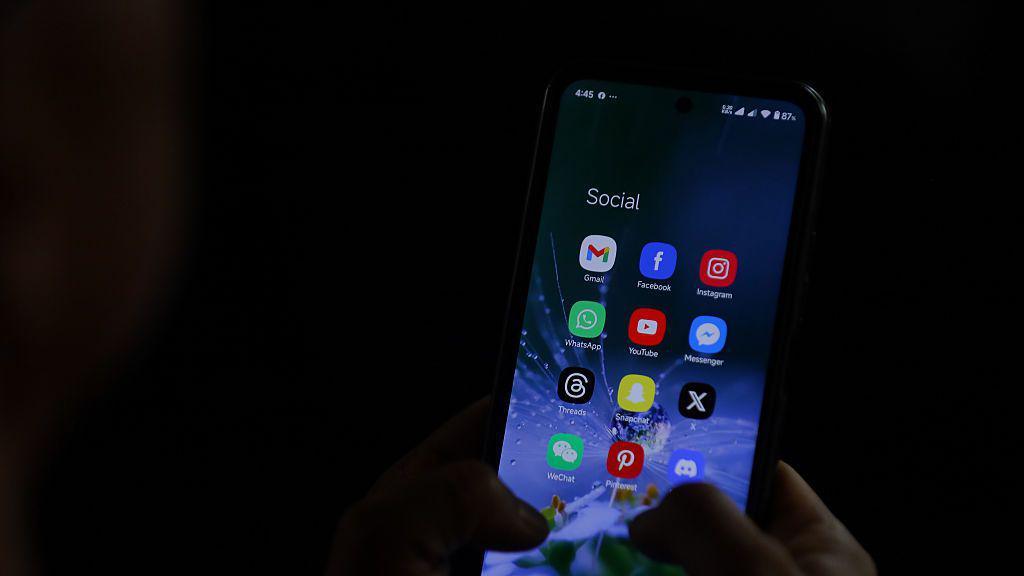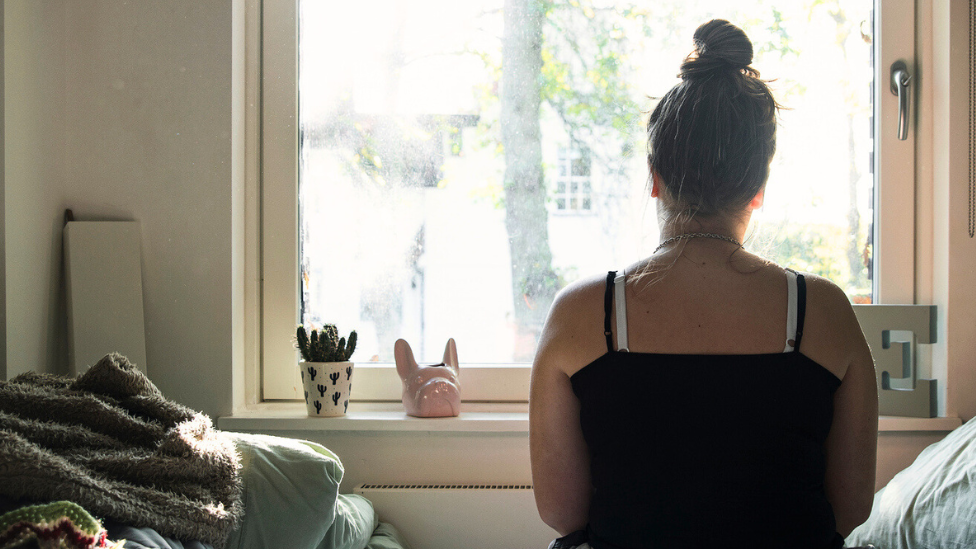Isolation 'drives teenagers to seek rewards'

'Social media might reduce some of the negative effects of isolation,' says Prof Sarah-Jayne Blakemore
- Published
People in their late teens are "very sensitive" to loneliness and are more likely to take action to boost their mood after just a few hours of isolation, say researchers.
A University of Cambridge-led study found adolescents turned to coping mechanisms including interaction with others, playing online games and sometimes drugs and alcohol after spending time alone.
The researchers said "reward-seeking" was an evolutionary adaptation, but they have warned it could lead to riskier behaviour when healthy alternatives are unavailable.
The study also found that virtual interaction via social media could reduce loneliness, but it did not fully protect emotional wellbeing.
The research involved 40 people from Cambridge aged between 16 and 19 who had good social connections and no history of mental health problems.
They were asked to spend time alone on two occasions – once with no social interaction and once with access to virtual communication via phones or laptops.
After isolation, they showed more "reward-seeking" behaviour, but this changed once they were allowed to interact with others on social media during isolation.
When they had access to social media they felt less alone, but they still experienced the same decrease in their positive moods as those without that access, the study said.
'A complex relationship'
"Our study demonstrates just how sensitive young people are to very short periods of isolation," said Dr Livia Tomova.
Dr Tomova, who is now based at the University of Cardiff, said other studies suggested that adolescent loneliness had doubled worldwide over the past decade.
Social media had been suggested as the culprit, but the researchers said many other changes in society could also be to blame.
"Social media can lead to loneliness in some adolescents, but our study suggests that this relationship is complex," said Prof Sarah-Jayne Blakemore from the University of Cambridge's psychology department.
"Virtual interaction with others seems to make isolated teens less driven to seek external rewards compared with when they are isolated without access to social media.
"That suggests social media might reduce some of the negative effects of isolation, but of course we don't know what potentially harmful effects it might have at the same time."
Get in touch
Do you have a story suggestion for Cambridgeshire?
Follow Cambridgeshire news on BBC Sounds, Facebook, external, Instagram, external and X, external.
Related stories
- Published13 November 2024

- Published9 June 2022
